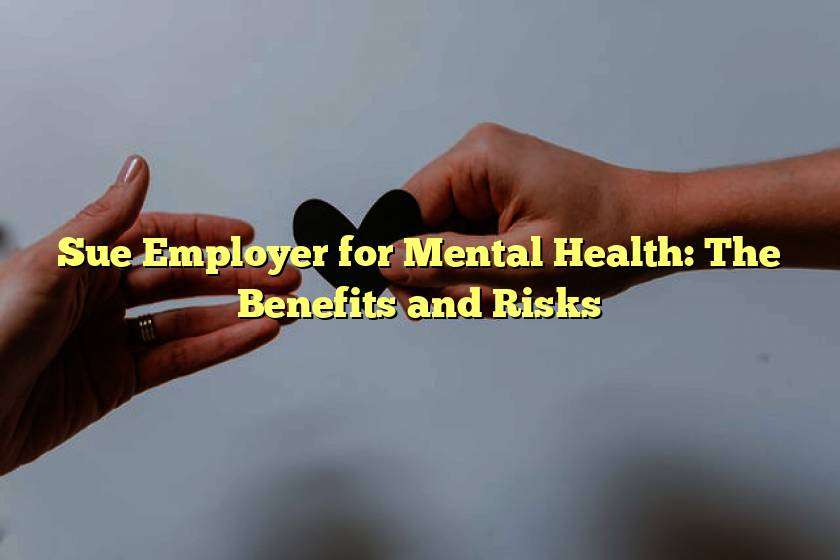In recent years, mental health has become a hot topic in the corporate world. Many companies have started to prioritize employee well-being and offer various wellness programs to support their employees’ mental health. However, not all companies are proactive in this regard, and employees can still face significant struggles with their mental health while on the job.
In extreme cases, employees may feel that their mental health struggles are a direct result of their work environment. If this is the case, some employees might consider taking legal action against their employer and suing them for failing to provide a safe working environment that supports their mental health needs.
If you’re an employee who is considering taking this step, it’s essential to understand the benefits and risks of doing so. In this article, we’ll explore both sides of the issue to help you make an informed decision.
Benefits of Suing an Employer for Mental Health
- Raises Awareness
By suing an employer for failing to provide a safe work environment in terms of mental health, you are raising public awareness and drawing attention to how serious the issue is. It may also prompt your employer to take positive steps to improve the situation.
- Compensation
If you have experienced significant emotional distress, you may file a lawsuit to claim compensation for past and future medical expenses, lost wages, and pain and suffering. Winning a lawsuit may also provide you with a sense of vindication, knowing your employer is being held accountable for their actions.
Risks of Suing an Employer for Mental Health
- Legal Costs
Hiring an attorney to represent you in a lawsuit can be expensive. You may also have to pay for additional legal fees, expert witnesses, and court costs, which can accumulate quickly.
- Career Implications
Suing your employer may impact your current job and future career prospects. It’s not uncommon for employees who have filed lawsuits against their employer to experience workplace retaliation, such as being ostracized from their team or being passed over for promotions.
- Time and Emotional Cost
Legal proceedings can be lengthy and emotionally taxing, adding more stress to the already taxing situation you are in. If you decide to sue your employer, it’s essential to be prepared for the long haul emotionally, mentally, and financially.
Alternatives to Suing
If you’re hesitant to sue your employer, there are alternative avenues to explore:
- Employee Assistance Programs (EAPs)
Many companies offer EAPs that provide free or low-cost counseling services to employees. Take advantage of these programs to get the help and support you need.
- File a complaint with a regulatory agency
If you feel that your employer has violated your rights, you can file a complaint with a regulatory agency such as OSHA (Occupational Safety and Health Administration) or the EEOC (Equal Employment Opportunity Commission).
- Speak with HR
Speak with HR to explain your situation and work together to find a solution that works for both you and the company.
Conclusion
If you are considering suing your employer for failing to provide a safe working environment that supports your mental health, it’s essential to consider the benefits and risks involved. While winning a lawsuit may bring compensation and raise awareness of the issue, it’s important to be aware of the potential legal costs, career implications, and emotional impact.
Before taking legal action, it’s important to explore alternative avenues such as EAPs, filing complaints with regulatory agencies, and speaking with HR. Ultimately, prioritizing your mental health and well-being is critical, and it’s essential to find the support you need to overcome any challenges and succeed in both your personal and professional life.



